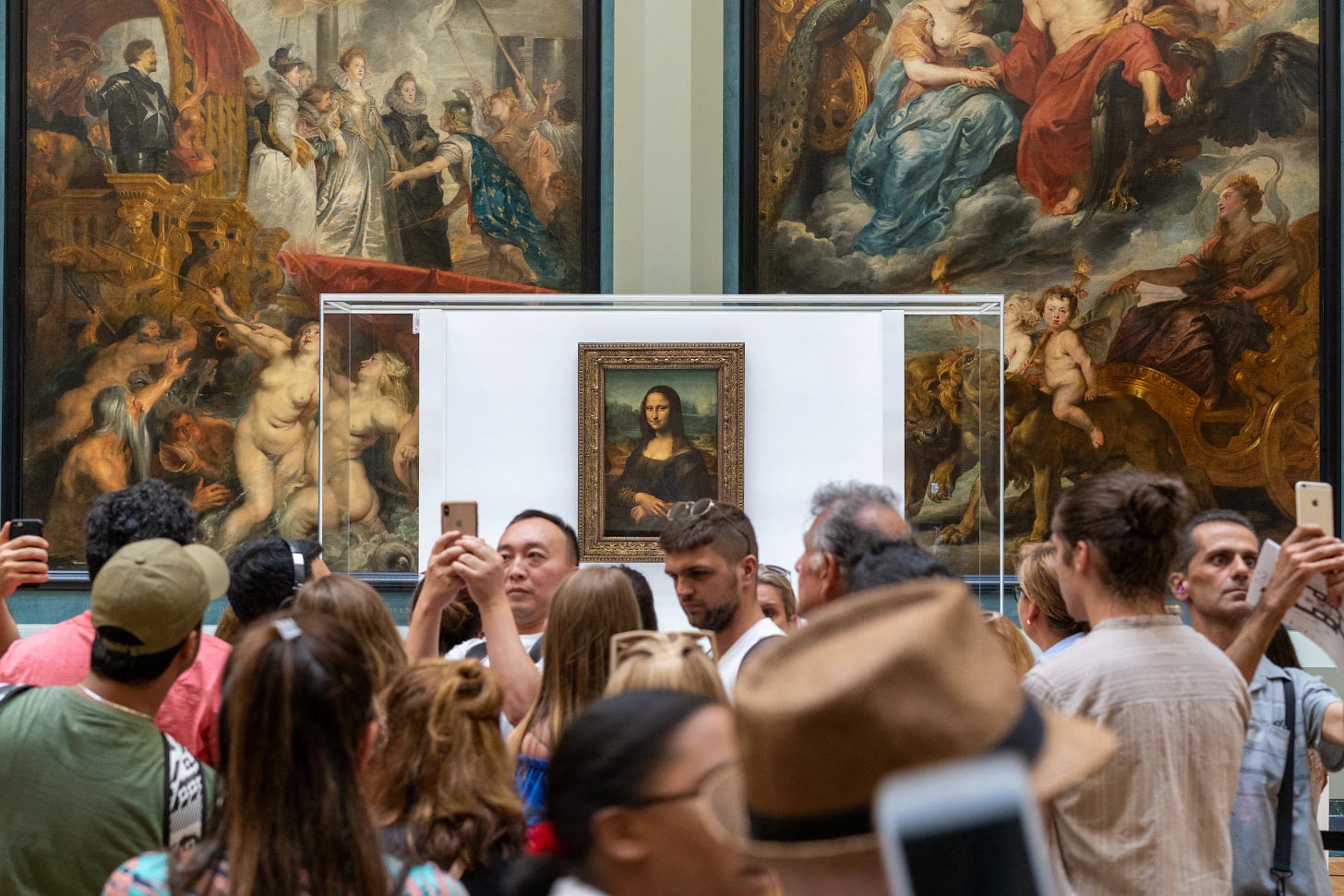Overtourism is Making Headlines This Month. Here Are Some Thoughts.
...though admittedly, these reflections are a work-in-progress-- and I remain ambivalent about my own responsibility as a travel writer

Several travel-related stories this month have caught my attention, and most of them have not been the sort that inspire envy, FOMO, nor daydreams of visiting featured destinations.
In fact, these stories do the very opposite. They’re alarming, often admonishing, reports on how formerly beloved destinations have been gutted of their local cultural diversity, charm, prosperity and overall vibrancy due to overtourism.
Overtourism is something I’ve always thought about in one form or another, but mostly through the lens of being a former resident of a city (Paris) that is continuously thronged by visitors, at least in certain areas. My response has historically been to (1. avoid some of those places myself, especially in high season (2. warn visitors against what I’d characterised as “tourist traps” and (especially) against placing too much emphasis on a “bucket-list” or Instagrammable/TikTok-abble approach to travel and (3. try my best to cultivate, through my writing and “advice”, a sense that travel is about curiosity, cultural exchange, and, maybe above all, seeking some form of discomfort. More on that below.
But now, after reading several thoughtful, distressing pieces on the growing cultural, environmental and economic impact of overtourism— from Venice, Florence and Barcelona to Iceland, Cornwall and Hawaii— I find myself wondering whether my previous responses to the issue have been, well, pretty inadequate.
I especially wonder whether I’ve done enough to assess how I might be contributing to the problem, as someone who contributes more or less directly to the tourism industry through my writing.
At the same time, I remain a firm believer in the value, power, and joy of travel— and in the possibility for genuine cultural exchange and mind-expanding discovery it can provide. So I feel more than a little circumspect about broad assertions such as “tourism is neo-colonialism”: ones that feel both historically specious and eye-rollingly simplistic, at least when used in overgeneralized ways.
So yes, I’m ambivalent. But what I do know is that this is a problem that needs to be addressed squarely, including by those of us whose work actively promotes travel. Some soul-searching is in order for those of us who love traveling, but don’t want to inadvertently hurt the people and places we visit.
Keep reading with a 7-day free trial
Subscribe to Paris Unlocked Newsletter to keep reading this post and get 7 days of free access to the full post archives.



